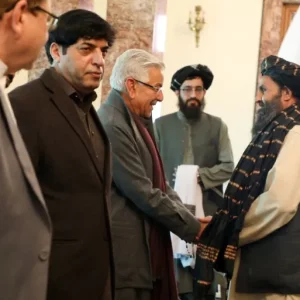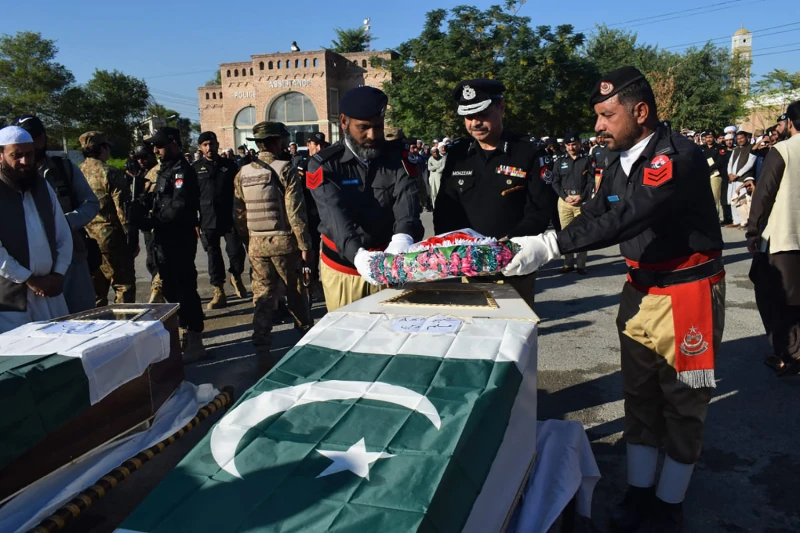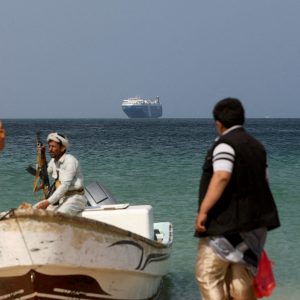A recent bombing of a Peshawar mosque by a faction of the Pakistani Taliban or Tehrik-i-Taliban Pakistan (TTP) has prompted fears that Pakistan’s terrorism problem is growing. The attack killed over 100 people, many of them police officers. The TTP initially claimed responsibility, although TTP leadership later denied involvement and blamed a breakaway faction. January 2023 has been Pakistan’s deadliest month in five years, with 44 separate terrorist attacks resulting in 134 deaths. Many of these attacks were carried out by the TTP, a distinct organization with an allegiance to the Afghan Taliban. The recent uptick in terrorism has led to questions on the capability of the Pakistani government to combat militants in the region and the effects that escalating violence will have on regional stability.
Who Are the TTP?
The TTP’s roots in Pakistan go as far back as 2002, and it was formally established in 2007. It has a stated goal of overthrowing the Pakistani government and installing an Islamic Emirate. However, the TTP concentrates its efforts on expelling the central government from the Khyber Pakhtunkhwa province and establishing Sharia, or Islamic law, within it. It has been the deadliest terrorist organization in Pakistan. The TTP has conducted many deadly attacks, including a December 2014 massacre at the Army Public school in Peshawar that killed nearly 150 people. Many victims were children.
Despite sharing the Taliban name, the Afghan and Pakistani Taliban are separate organizations; nonetheless, they maintain close ties, sharing a similar Islamist ideology and close geographic proximity. Relations between the groups have grown even closer in recent years, with the emir of the TTP renewing his oath of allegiance to the Taliban government in Afghanistan. Following the Afghan Taliban’s rise to power, the TTP has based itself in Afghanistan. This has been a strong point of conflict between the Afghan and Pakistani governments, given that the Pakistani government aided the Taliban expecting leverage over the group once the Taliban were in power.
The TTP and their offshoots have continued to launch attacks throughout Pakistan against security forces and civilians, with the majority of their power within Pakistan concentrated in the rural former Federally Administered Tribal Areas of the Khyber Pakhtunkhwa province.
What Effects Will TTP Activity Have on the Region?
Pakistan has been unable to launch an effective military response to the TTP as economic issues have left the state without the resources to reduce the long-term threat. Economic turmoil has plagued the country as inflation recently hit a 48-year high, and Pakistan’s foreign currency reserves are rapidly depleting. This, combined with domestic political turmoil following the removal of former Prime Minister Imran Khan from office and the significant TTP presence in Afghanistan, has put the Pakistani armed forces in a less-than-ideal position to combat the growing TTP threat. The Pakistani military has launched operations against the group, including air strikes against TTP targets in Afghanistan. Still, a sizeable increase in military force against the TTP would be necessary to dislodge it from its positions in Afghanistan and northwestern Pakistan. It is unlikely that the Pakistani government will be able to muster the resources or political will to do this in the near future.
The Taliban government in Afghanistan has allowed the TTP to operate with impunity, enabling the group to base its operations from the country and raise funds within it. According to a UN report, the TTP represents the most extensive foreign terrorist presence in Afghanistan, with 3,000 to 4,000 fighters based in the country. This serves as a substantial area of Pakistani frustration as the Taliban government in Afghanistan has been using its relationship with the TTP as leverage over Pakistan rather than cooperating to use military force against the group.
Relations between the two nations have been previously strained due to border clashes and Afghan inaction against India. The border clashes mainly result from the Afghan Taliban’s refusal to accept the Durand Line as the boundary between the two states. The Durand line has been controversial in Afghanistan since its establishment as it split the Pashtun ethnic group between the two states and deprived the Afghan government of a large portion of its historic territory. Factors including ethnic Pashtuns making up the majority of the Afghan Taliban and domestic political opposition to the Durand Line make it unlikely that the Afghan government will change its position on this issue in the near future without strong incentives from the Pakistani government.

Afghan ties with India are another point of contention between the two nations. One major benefit the Pakistani government saw when it supported the Taliban’s rise to power in Afghanistan was establishing a state aligned with its anti-India policy. However, since arriving in power, the Taliban have attempted to warm relations with India. Examples include the welcoming of Indian aid to Afghanistan and Mullah Yaqoob, the Taliban Defense Minister, stating that he wishes for India to train Taliban troops. These developments have been particularly frustrating for the Pakistani government as an uncooperative Taliban regime in Kabul weakens Pakistan’s geopolitical standing against India.
Continued radicalization and terrorism in Pakistan will further strain the tense Afghan-Pakistani relationship. By providing a safe haven for TTP fighters, refusing to accept the Durand Line, and warming relations with India, the Afghan Taliban are signaling independence from Pakistani policymakers who have sought for decades to have an Afghan client state. The TTP has been able to live a more open existence and regroup its strength as the Afghan state is no longer openly hostile to its activities in the region. This increase in TTP strength and subsequent rise in attacks represent a significant security and stability threat to the Pakistani state, prompting the US and Pakistan to engage in a counter-terrorism dialogue.
The Pakistani government issued a press release on the dialogue, stating, “The two-day dialogue will provide an opportunity for both sides to exchange views and share their experiences and best practices in the domain of counter-terrorism.”
What Will the Future Hold for Pakistan?
The Pakistani government is not equipped to fully defeat the TTP militarily, and recent attempts at negotiations between the two parties have crumbled. Conflict will likely continue without a negotiated settlement or increased Afghan pressure on the TTP. This will harm relations between the Afghan and Pakistani governments while likely leading to an increase in terrorist attacks in cities like Peshawar.
Without the ability to mount an intense, long-term military campaign capable of defeating the TTP, Pakistan’s strategy will likely be multifaceted, with a focus on obtaining a sustainable cease-fire agreement. Part of this strategy will presumably be the continuation of targeted raids and air strikes against the group in an attempt to pressure it to return to the negotiating table. The Pakistani government will likely continue to attempt to pressure the Afghan government to clamp down against the TTP through negotiations. A Pakistani delegation led by Defense Minister Khawaja Muhammad Asif recently traveled to Kabul with this very intent.
“Matters relating to the growing threat of terrorism in the region, particularly by TTP and ISKP came under discussion,” the Pakistani government stated in a press release. “The two sides agreed to collaborate to effectively address the threat of terrorism posed by various entities and organizations. Both sides agreed to strengthen bilateral cooperation in various fields to further enhance the fraternal relations between the two countries.”
The press release’s positive tone does not necessarily mean that significant progress has been made on bridging the gap between Pakistani and Afghan positions with regard to the TTP. It remains to be seen if current and future talks will result in a meaningful shift in Afghanistan’s policy towards the TTP. Given their close ties and the leverage over Pakistan gained by the Taliban government by harboring the extremist group, a major shift in Afghan policy is unlikely without a change in circumstances, such as concessions from Pakistan or major external pressure.
Despite the mounting tensions, it is doubtful that a complete breakdown of relations will happen as both governments have a vested interest in building a stable relationship. Trade links are strong between the two countries, and Afghanistan is very reliant on Pakistan for development aid. Continued deterioration of relations between the countries would harm both of their interests; however, tensions remain high and true progress has yet to be made.
Feature Image Source: Stringer/AFP via Getty Images






Comments are closed.